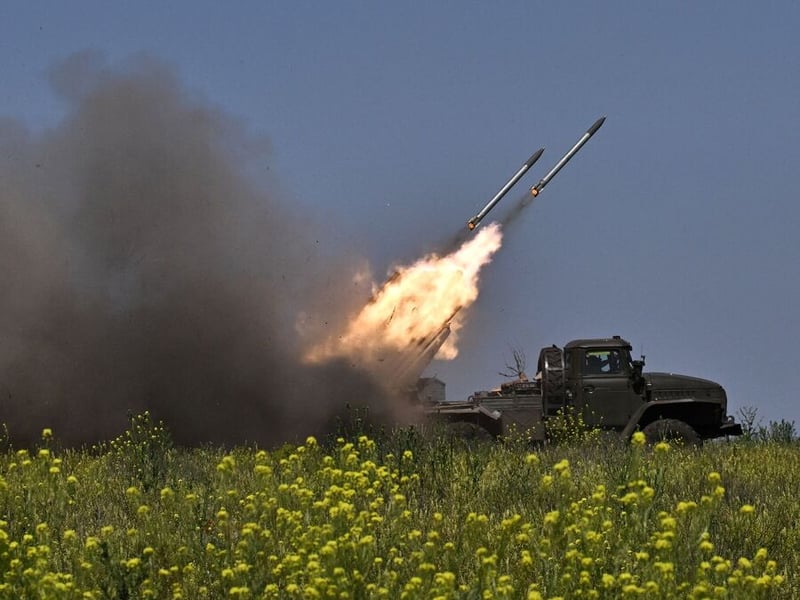

Most retirement plans have investments that fund weapons of war, including exposure to the makers of controversial munitions like cluster bombs, according to a report Tuesday from As You Sow.
The revelation comes amid an outcry over the federal government’s decision to provide cluster bombs to Ukraine to aid in its defense against Russia. Such weapons are widely condemned by nongovernmental organizations because portions can remain undetonated for years, posing a danger to others — especially children — long after conflicts have ended.
The 25 biggest U.S. asset managers all have exposure in their mutual funds to controversial weapons and nuclear weapons, with holdings ranging from 2.5% to about 5.3%, according to As You Sow. The five companies with exposure of more than 4% are John Hancock, American Funds, Columbia Threadneedle, Franklin Templeton and MFS, the report found.
“Many investors, given a choice, would not want to profit from companies that manufacture weapons of mass destruction,” As You Sow CEO Andrew Behar said in an announcement of the findings. “Yet nearly every retirement plan has nuclear and other controversial weapons embedded in their plan.”
However, the Employee Retirement Income Security Act has long-standing principles of prudence and loyalty that require fiduciaries to not sacrifice returns or assume risk for social choices, said Bonnie Treichel, chief solutions officer at Endeavor Retirement.
"I respectfully think that Behar is missing the point in an Erisa-covered plan," Treichel said in an email, pointing to the Department of Labor's new rule governing ESG factors in retirement plans. "Under the final regulation, if there is a tiebreaker, Erisa does not preclude consideration of nonfinancial benefits such as participant preferences but fiduciaries must lead with financial interest of participants and a prudent process. "
The Weapon Free Funds database launched by As You Sow lists the military manufacturer holdings for individual funds by ticker. Any fund with 5% or more of its investments in weapons-related companies is graded with an F by the group.
The John Hancock Disciplined Value Mid Cap Fund, for example, has 11% of its portfolio in military contractors, according to the site.
As You Sow also provides data for the 25 largest sustainable fund providers, all of whom — with the exception of the Engine No. 1 ETF — have exposure levels under 2.5%. The Engine No. 1 ETF has nearly 5.8% exposure, putting it well above the rest of the 50 fund companies in the report.
The report comes as the retirement plan world is roiled with arguments about ESG data being politicized. It shows the need for more disclosure so that fund investors can assess for themselves how sustainable or responsible a product is, said David Roth, co-founder of Fair Planet Advisors.
“It’s like before we had ‘organic,’ [the word] ‘natural’ meant something, but not really. And that’s what’s happening in the investing world,” Roth said.
Investing, like all things, is imperfect — but how much tolerance an investor has for holdings that conflict with their values is an individual choice, he said. “What we need is unbiased data — and then people can bring their own values to the table.”

Relationships are key to our business but advisors are often slow to engage in specific activities designed to foster them.

Whichever path you go down, act now while you're still in control.

Pro-bitcoin professionals, however, say the cryptocurrency has ushered in change.

“LPL has evolved significantly over the last decade and still wants to scale up,” says one industry executive.

Survey findings from the Nationwide Retirement Institute offers pearls of planning wisdom from 60- to 65-year-olds, as well as insights into concerns.
Streamline your outreach with Aidentified's AI-driven solutions
This season’s market volatility: Positioning for rate relief, income growth and the AI rebound
